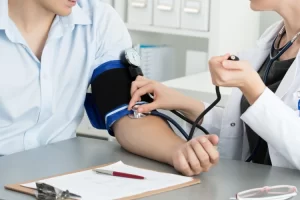
It can be difficult to deal with a person who has become addicted to alcohol and other drugs (cocaine, crack, etc.), as they are capable of altering a person’s brain capacity, so that in pathological cases they live only because of getting the substances that can stimulate your brain and provide well-being.
There are, however, some tips that can help at this delicate time. The goal is to make the person recognize their dependence and accept the most appropriate treatment. You need drug rehabilitation here.
Chat
In cases of substance abuse, having a conversation with the dependent person can be tricky. The addiction will make the person become defensive and in a constant state of denial, commonly claiming not to be dependent on alcohol or other drugs.
You have to wait for a moment of sobriety and have a direct and rational conversation with the dependent, raising specific questions about how addiction will harm your life and why you need to seek help while there is still time.

There are several clinics or support groups that can help right now such as Alcoholics Anonymous, Narcotic Anonymous, etc.
Inquire
If you already know which drug the person depends on, seek as much information as possible on how the substance in question changes an individual’s behavior and seek information about support groups or specialist clinics.
Armed with information, you can talk more properly and eventually convince the person that there is a problem and that help is needed.
Remembering that it is not at all advisable to use aggression to dialogue with the dependent person, because they can easily refuse and continue to perform their impulsive behavior, after all, their brain will be harmed by abuse and the priority of the dependent will always be the search. of the substance.
Stimuli
There will always be a track record until you reach the point of dependence. When you are close to the person who is suffering from drug addiction, you will probably know his or her previous habits and what used to make them feel quite natural, away from the stimuli of psychotropics.
Encourage these previous habits, whether it’s sports, reading, music, etc. It must be, in short, anything that will stimulate the addict’s brain and make him see that it is possible to move on without drugs.
In this decisive phase, the individual “tidies up the attic” consolidates his behaviors or principles, acquired through Abstinence or Recovery (SEM), to a way of being in the family, community and society active and conscious citizen of society. It identifies risk factors and protective factors. They are committed to monitoring risk behaviors and protective behaviors.
Active integration in society
In some cases, some individuals are available to help others with the same addiction problem.Occasional relapses (periods of addictive substance abuse) after the onset or first year of abstinence. These episodes are an integral part of this individual learning and development process.





